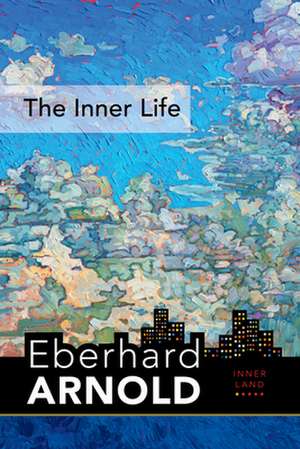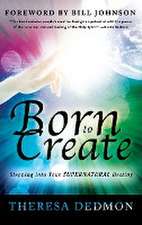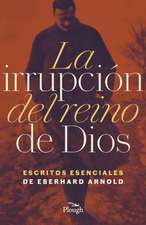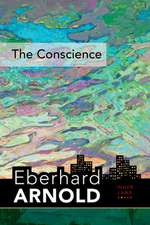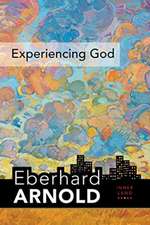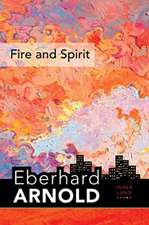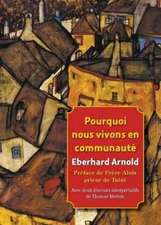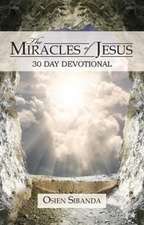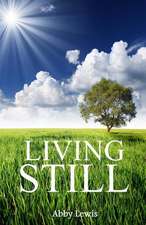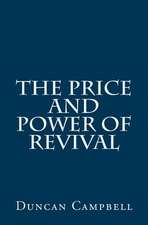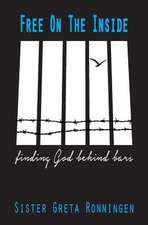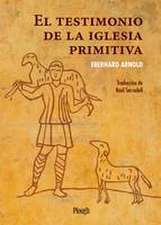Inner Life: Eberhard Arnold Centennial Editions
Autor Eberhard Arnolden Limba Engleză Hardback – 31 iul 2019
It is hard to exaggerate the significance of Innerland, either for Eberhard Arnold or his readers. It absorbed his energies off and on for most of his adult life--from World War I, when he published the first chapter under the title War: A Call to Inwardness, to 1935, the last year of his life.
Packed in metal boxes and buried at night for safekeeping from the Nazis, who raided the author¿s study a year before his death (and again a year after it), Innerland was not openly critical of Hitler¿s regime. Nevertheless, it attacked the spirits that animated German society: its murderous strains of racism and bigotry, its heady nationalistic fervor, its mindless mass hysteria, and its vulgar materialism. In this sense Innerland stands as starkly opposed to the zeitgeist of our own day as to that of the author¿s.
At a glance, the focus of Innerland seems to be the cultivation of the spiritual life as an end in itself. Nothing could be more misleading. In fact, to Eberhard Arnold the very thought of encouraging the sort of selfish solitude whereby people seek their own private peace by shutting out the noise and rush of public life around them is anathema. He writes in The Inner Life:
Innerland, then, calls us not to passivity, but to action. It invites us to discover the abundance of a life lived for God. It opens our eyes to the possibilities of that ¿inner land of the invisible where our spirit can find the roots of its strength and thus enable us to press on to the mastery of life we are called to by God.¿ Only there, says Eberhard Arnold, can our life be placed under the illuminating light of the eternal and seen for what it is. Only there will we find the clarity of vision we need to win the daily battle that is life, and the inner anchor without which we will lose our moorings.
Preț: 108.28 lei
Nou
Puncte Express: 162
Preț estimativ în valută:
20.72€ • 21.75$ • 17.20£
20.72€ • 21.75$ • 17.20£
Carte disponibilă
Livrare economică 21 martie-04 aprilie
Preluare comenzi: 021 569.72.76
Specificații
ISBN-13: 9780874861679
ISBN-10: 0874861675
Pagini: 112
Dimensiuni: 146 x 218 x 17 mm
Greutate: 0.3 kg
Editura: Plough Publishing House
Seria Eberhard Arnold Centennial Editions
ISBN-10: 0874861675
Pagini: 112
Dimensiuni: 146 x 218 x 17 mm
Greutate: 0.3 kg
Editura: Plough Publishing House
Seria Eberhard Arnold Centennial Editions
Notă biografică
Eberhard Arnold (1883¿1935) studied theology, philosophy, and education at Breslau, Halle, and Erlangen, where he received his doctorate in 1909. He became a sought-after writer, lecturer, and speaker in his native Germany. Arnold was active in the student revival movement sweeping the country and became secretary of the German Christian Student Union. In 1916 he became literary director of the Furche Publishing House in Berlin and editor of its monthly periodical. Like thousands of young Europeans, Eberhard Arnold and his wife Emmy were disillusioned by the failure of the establishment ¿ especially the churches ¿ to provide answers to the problems facing society in the turbulent years following World War I. In 1920, out of a desire to put into practice the teachings of Jesus, the Arnolds and their five young children turned their backs on the privileges of middle-class life in Berlin and moved to the small German village of Sannerz. There, with a handful of like-minded seekers who drew inspiration from the Youth Movement, the sixteenth-century Anabaptists, and the early Christians, they founded an intentional community on the basis of the Sermon on the Mount. The community, which supported itself by agriculture and a small but vibrant publishing house, attracted thousands of visitors and eventually grew into the international communal movement known as the Bruderhof.
